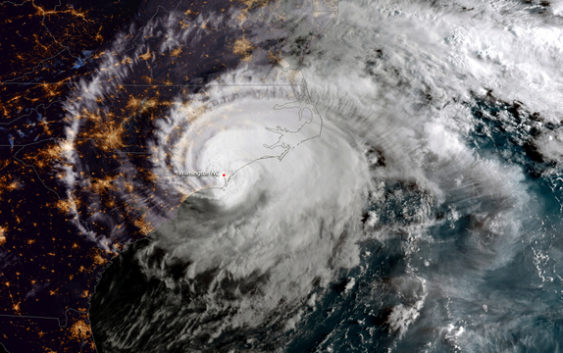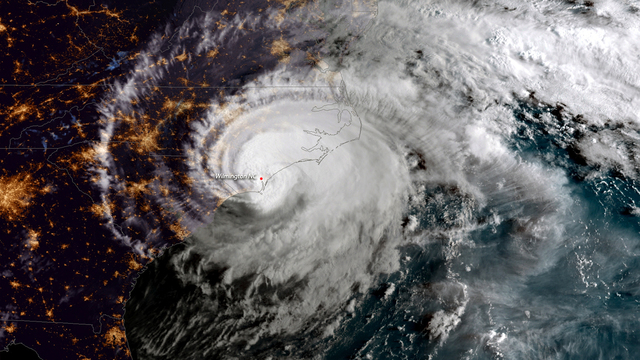- U.S.-based aid groups rush to get supplies into storm-battered Jamaica after Hurricane Melissa
- Travelers stuck in Jamaica due to Hurricane Mellissa forced to pay for unwanted extended stay
- Raleigh police officer awaits word from family in Jamaica after Hurricane Melissa devastation
- North Carolina’s leaders give insight on the effects of Hurricane Melissa
- ‘We want some answers;’ Whiteville residents demand city response to prevent flooding
World's warming; expect more intense hurricanes

WASHINGTON (AP) — Study after study shows climate change in general makes hurricanes worse. But determining global warming’s role in a specific storm such as Hurricane Florence is not so simple — at least not without detailed computer analysis.
The Associated Press consulted with 17 meteorologists and scientists who study climate change, hurricanes or both. A few experts remain cautious about attributing global warming to a single event, but most clearly see the hand of humans in Florence and other big storms.
RELATED: Nearly 790K without power in North Carolina
Global warming didn’t cause Florence, they say. But it makes the system a bigger danger.
Says Jonathan Overpeck, dean of the environment school at the University of Michigan: “Florence is yet another poster child for the human-supercharged storms that are becoming more common and destructive as the planet warms.”
You can stay ahead of the storm by visiting the FOX 46 Hurricane Resource page.
 In this NOAA satellite handout image captured at 7:45 a.m. ET, shows Hurricane Florence as it made landfall near Wrightsville Beach, North Carolina on September 14, 2018. (Photo by NOAA via Getty Images)
In this NOAA satellite handout image captured at 7:45 a.m. ET, shows Hurricane Florence as it made landfall near Wrightsville Beach, North Carolina on September 14, 2018. (Photo by NOAA via Getty Images)